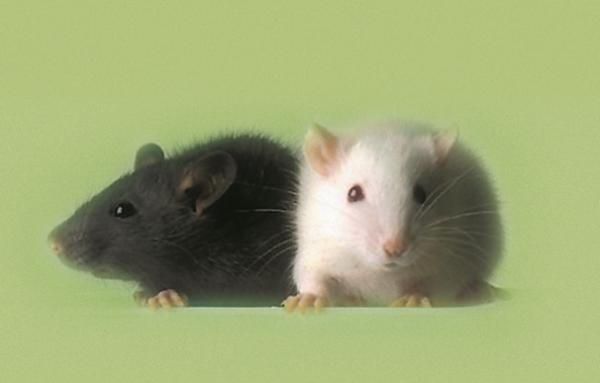'Humanized' Mice to Aid Drug Testing

You've heard of scientists testing drugs on mice — but what if those mice were part human? MIT researchers have developed an artificial liver that can be transplanted into mice, allowing them to metabolize drugs as if they were human beings. This could foster more accurate and efficient drug testing.
In order to create this liver, researchers cultured hepatocytes — human liver cells — in a controlled environment with other factors, such as mouse skin cells. The team then implanted the artificial liver under the skin or inside the body cavity of mice, successfully recreating many of the functions of a human liver.
While previous attempts to engineer "humanized mice" have led to varied, often negative results, MIT's team says this discovery will produce consistently healthy mice that can emulate human liver functionality. This could result in a number of positive applications — researchers could use these mice to test out pharmaceuticals, experiment with metabolic functions, and monitor the interactions between multiple types of drugs — all without using a single human test subject.
Humanized mice can be extremely beneficial to scientists across the world, says MIT researcher Alice A. Chen.
"In the near term, we envision using these mice alongside existing toxicology models to help make the drug development pipeline safer and more efficient," Chen told InnovationNewsDaily.
Scientists can also use the mice to study human livers and develop cures to diseases that normal mice don't contract — like hepatitis C or malaria infections.
The MIT team has been studying the effect of stromal cells, or connective tissue cells, on the human liver for over a decade now, Chen says. Though human liver cells are extremely difficult to culture, the team was able to grow them together with mouse skin cells in a polymer scaffold (assisted by a synthesis-boosting peptide), taking “years of dedicated research” to strike a balance for sustainable liver functions.
Sign up for the Live Science daily newsletter now
Get the world’s most fascinating discoveries delivered straight to your inbox.
Chen says it won't be long before they are able to mass produce and distribute humanized mice, allowing both industrial and academic scientists to use them for research. This could revolutionize the way researchers test drugs.
"Mice and other laboratory animals do not have the full complement of drug metabolism enzymes that humans do," Chen said. "As a result, many of the activities, metabolites and resulting toxic effects of human exposure to new drugs cannot be fully predicted by animal tests."
By using mice with human livers, Chen says, researchers will be able to predict human metabolites and toxicities more accurately than they would in animals — without having to test drugs on humans, which can be pricy and dangerous.
This story was provided by InnovationNewsDaily, sister site to Live Science. Follow InnovationNewsDaily on Twitter @News_Innovation, or on Facebook.












